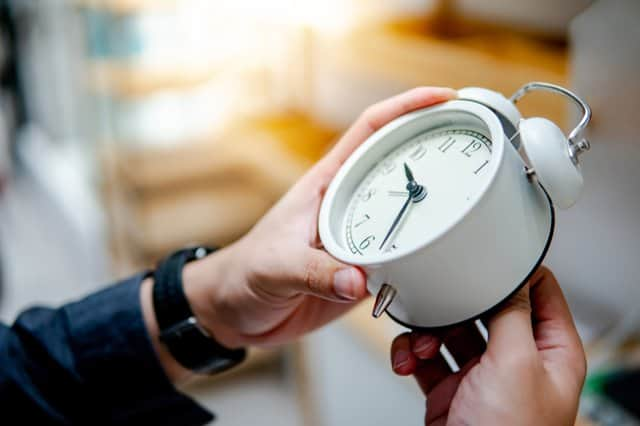When do clocks go back in 2022? Date and time clocks go back in the UK - and UK clocks change, explained
and live on Freeview channel 276
Despite warm temperatures for September, shorter days are creeping up on us and the clocks will go back soon, meaning days will be even shorter.
The UK’s system sees the clocks change twice a year, ‘falling back’ ahead of winter and going forward in spring.
Advertisement
Hide AdAdvertisement
Hide AdBut when will clocks go forward in 2022? And why do the clocks change in the UK each year?
Here’s everything you need to know.
Why do clocks change in the UK?
British Summer Time has existed for over a century, and it was created following a campaign by British builder William Willett with the Summer Time Act of 1916.
Mr Willett wrote about his idea in his 1907 pamphlet called The Waste of Daylight, in which he proposed that days were made longer in the summer so he could play golf for longer.
After much lobbying, Mr Willett's idea was introduced to the UK a year after his death.


Advertisement
Hide AdAdvertisement
Hide AdIt was thought that the new way of observing time would make the most of natural sunlight and conserve energy, which was essential during World War I when coal was limited.
The logic was that it was pointless to waste electricity when there was actual daylight still to be used.
When do the clocks go back in 2022?
Clocks in the UK change twice a year in relation to the changing of seasons, with clocks going forward or ‘falling back’ by an hour depending on whether it is the start or end of British Summer Time.
In autumn, the addition of an hour when clocks are moved back again means that there are roughly 25 hours in the day rather than 24.
Advertisement
Hide AdAdvertisement
Hide AdThe biannual UK clock changes are best summed up with the more concise, memorable phrase: ‘spring forwards, fall back’.
In 2022 the clocks will go back on Sunday 30 October at 2am, marking the end of British Summer Time this year.
British Summer Time (BST) is a time zone which is used to help Brits and those in northern hemisphere countries take advantage of increased daylight hours.
Due to the earth’s axis being tilted at 23.4 degrees, the northern hemisphere sees more daylight hours in summer and shorter, darker days in the winter.
When the clocks go back, the UK is on Greenwich Mean Time (GMT).
Comment Guidelines
National World encourages reader discussion on our stories. User feedback, insights and back-and-forth exchanges add a rich layer of context to reporting. Please review our Community Guidelines before commenting.